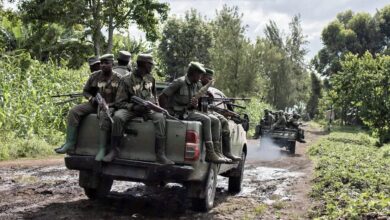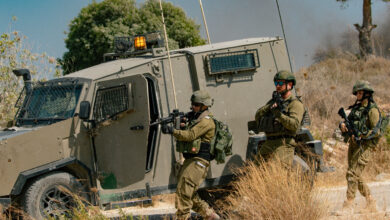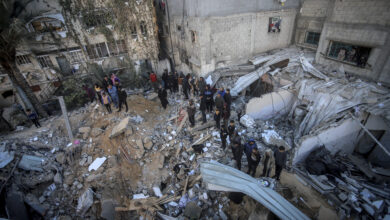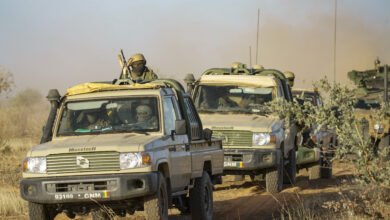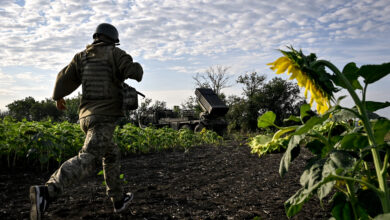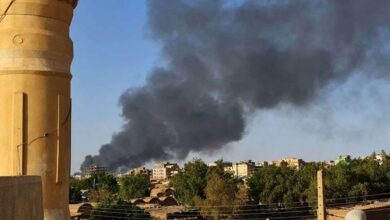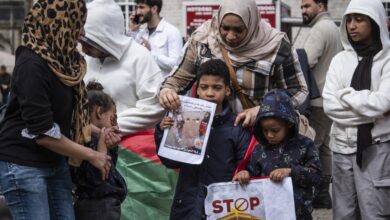UN investigates ‘credible’ reported Afghanistan airstrike that killed 9 from a single family
The United Nations said Tuesday it was investigating “credible reports” that nine members of a family had been killed in an air strike in Afghanistan, but U.S. Forces denied the victims were civilians.
Women and children were among those reportedly killed on Saturday after an “aerial ordnance” hit the home of a teacher in Tagab district in the eastern province of Kapisa, the U.N. Assistance Mission in Afghanistan said in a statement on Tuesday, September 25.
Six other family members were wounded in the attack on Badrab village, UNAMA added, citing “multiple, credible allegations.”
“All the victims from the attack were from the same family, including grandparents and children aged between two and 12,” it said.
Latif, whose home was one of three damaged in the strike, told AFP on Monday that 15 members of a family including three children were killed when a “bomb” hit their house on Saturday night.
But local officials told AFP they had not received any reports of civilian casualties.
U.S. Forces spokesperson David Butler said Afghan ground troops involved in a gunbattle had been forced to call in U.S. air support.
“Only militants” were killed, Butler said in a statement on Tuesday, adding that U.S. Forces “suppressed the target, killing the militants who were firing against our partners.”
The Afghan National Army later reported that locals had been told to claim civilian casualties, Butler said.
A U.S. Forces assessment showed nine militants were killed.
“The incident took place during operations conducted by Pro-Government Forces against Taliban in the area,” UNAMA said. “It was not immediately clear whether the strike was carried out by international military forces or by the Afghan Air Force.”
Initially, before the UNAMA statement was published, U.S. Forces had said that “six militia” were wounded in the incident after a U.S. forces helicopter returned fire “in self defense” and were being treated in a U.S. hospital.
Local militias often work with overstretched security forces in Afghanistan.
UNAMA said it was in contact with Afghan and U.S. forces as part of its “ongoing independent verification process.”
In a separate incident, 12 members of a family were killed in airstrikes targeting Taliban fighters in Wardak province near Kabul on Monday, provincial council member Ahmad Jahfari told AFP.
But provincial governor spokesperson Abdul Rahman Mangal said there had been “no reports of any civilian casualties” in the ongoing operation in Jaghato district that had so far killed more than 40 Taliban.
U.S. Forces did not immediately respond to a request for comment.
Afghanistan civilian casualties
Civilian deaths from air strikes have risen sharply this year as Afghan and U.S. forces intensify the aerial bombardment of Taliban and Islamic State – Khorasan Province militants.
UNAMA said in a July report that the number of civilians killed in the nearly 17-year conflict hit a record high in the first six months of 2018.
The mission documented 353 civilian casualties – 149 deaths and 204 injuries – from aerial attacks in the first six months of this year – up 52 percent from the same period in 2017.
One of the worst incidents was in Kunduz in April, when an Afghan air strike on an outdoor religious gathering in Dasht-e-Archi killed or wounded 107 people, mostly children, a previous UNAMA report said.
The government and military said it had targeted a Taliban base where senior members of the group were planning attacks.
A U.N. investigation later found the Afghan government “used rockets and heavy machine-gun fire on a religious gathering, resulting in high numbers of child casualties.”
The Afghan Air Force was responsible for 52 percent of the casualties documented so far this year, while “international military forces” accounted for 45 percent, UNAMA said on Tuesday. The U.S. is the only international force known to conduct air strikes in Afghanistan.
With reporting from AFP





